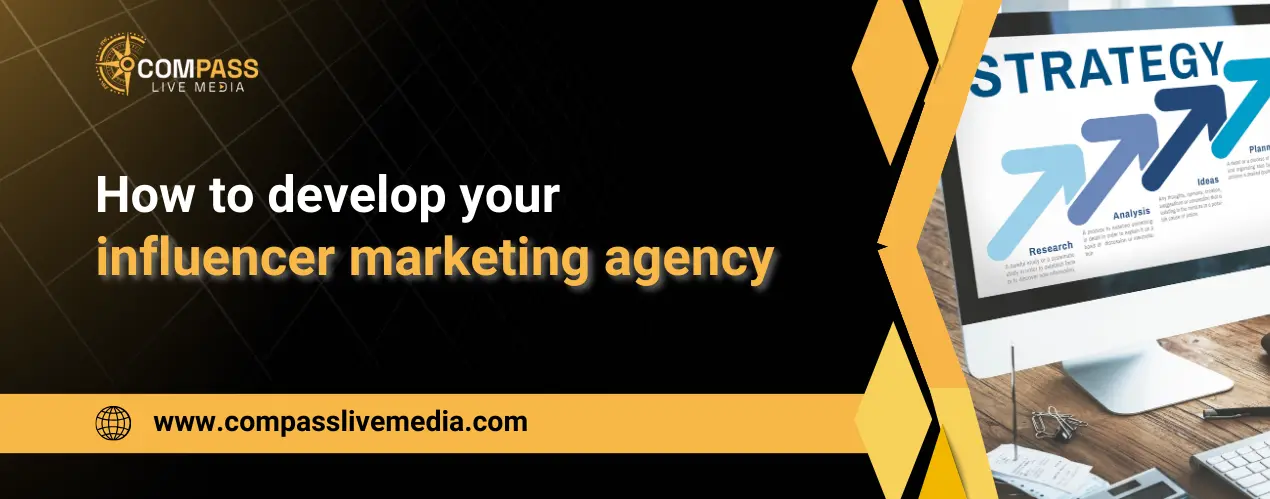What is influencer marketing?
Influencer marketing is a kind of social media marketing that employs influence and product advocates known as influencers, who are people who enjoy a good following on their favorite social media platforms and are considered to be authorities in their line of specialization. The followers trust recommendations from these influencers for the following reasons: credibility, authority, and relationship with the followers. Influencer marketing is a type of social media advertising firm marketing that leverages endorsements and product mentions from influencers—individuals who have a dedicated social following and are viewed as experts within their niche. These influencers can sway the purchasing decisions of their audience due to their credibility, authority, and relationship with their followers.
Types of Influencers
Influencers come in various sizes and types, each serving different purposes depending on the marketing goals and target audience. The main types of influencers include:
1. Mega-influencers: These are famous people, political leaders, artists, or anyone famous with lots of followers. They can reach a lot of people within the shortest time possible, but note that they often have no close interaction with their followers.
2. Macro-influencers: This category consists of influencers whose followers range from 100,000 to 1,000,000 audiences. Depending on the site, they usually dominate a definite circle, and people consider them specialists in a certain subject area.
3. Micro-Influencers: Depending on their ability to make sales, micro influencers have thousands of followers ranging from 10,000 to 100,000 with high engagement. There is an assumption that they are more genuine and trustworthy.
4. Nano-influencers: It is important to note that the influences used in this analysis have been selected based on the requirements of less than 10,000 followers. They are few and focused, and they are loyal and dedicated customers who use the products and services in a narrow range of markets.
The Power of Influencers in 2024
Thus, in 2024, it can be stated that the influence impact will keep on rising. Influencer marketing is a standard approach for brands to engage with their target audiences in a natural manner.
- Authenticity and Trust: The following are the key points that are evident when comparing audiences’ trust in influencers to traditional advertisements. Finally, there is a notion that influencers are real people who can recommend products that are worth consuming.
- Engagement: Influencers also tend to receive much higher engagement than brand accounts typically get on a regular basis. They engage their audience, and therefore their content gets well circulated compared to that of other social media gurus.
- Targeted Reach: Influencers help brands target their potential consumers in a very efficient and effective manner. By identifying influencers in specific niches, brands can better target the right audience.
- Content Creation: Influencers are masters at creating content. They may well prove useful to brands that wish to enrich their social media feeds with interesting and appealing material.
- Adaptability: Another reason is that influencers are up-to-date with trends and popular platforms, which helps brands remain popular and trendy in the ever-changing social media world.
What is an influencer marketing strategy?
An influencer marketing plan can therefore be defined as a master plan that serves to map out how a brand will execute influencer marketing for their intended marketing communication objectives. Choosing the right influencers, establishing campaign goals and objectives, and choosing the content and metrics to gauge success are all included in this push notification. Following these four areas of mutual interest in influencer marketing strategy will see the partnership produce a successful campaign that is mutually beneficial to both the brand and the influencer.
Five Key Steps to Building a Solid Influencer Marketing Plan
1. Crucial to Your Goals: The initial move is always to determine what objective you are planning to accomplish with your influencer marketing services campaign. Examples of such objectives include raising brand recognition, appealing to more website users, and acquiring more sales leads and sales.
2. Identify the right influencers: Select the appropriate influencers from your niche who would support the type of crowd that your products are designed for. Points like frequency of post/engagement, quality of posts, and brand credibility should all be considered.
3. Develop a collaboration plan: Explain how you are going to engage celebrities. Determine what kind of content you want written, what information you want conveyed, and through which channels. Always ensure that you spell out political, operational, and contractual expectations, maturities, and deliverables.
Successful management of resources includes setting up a budget for the project and negotiating contracts for services. Decide on your budget for carrying out the influencer marketing campaign. This includes the payment to the influencer and anything else, for instance, the cost of content sharing. Sign standardized contracts that detail the nature of the arrangement, compensation, products, and permission to use the product or logo of the partnering company.
4. Measure and Analyze Results: To measure the effectiveness of an influencer marketing campaign, use functions such as engagement rate, reach, website visits, and even sales conversion. Analyze the data to assess a specific campaign and compare it to previous successes and failures to make better future campaigns.
Why use influencer marketing?
Influencer marketing offers several benefits that make it a valuable addition to your overall marketing strategy:
- Enhanced Credibility and Trust: They have built rapport with the consumer, through whom he or she will take their word on a particular brand. As seen above, collaborating with individuals endorsed by the public can help your brand garner public trust.
- Increased Reach and Awareness: Partnering with other influencers ensures that your organization gets to harness the detailed followership that these influencers have and creates awareness among the customer base.
- Higher Engagement Rates: Excerpts that come with influencer content tend to capture engagement levels much higher than conventional advertising. The audience that follows their accounts is better suited to engage with and share this content.
- Cost-effective: Compared to the typical programmatic advertising tools, influencer marketing can be cheaper. As for the most effective influencers, micro and nano are even more engaging than macro and mega but cost less.
- Targeted Marketing: They defined influencers as always having a sphere of interest and a definite target audience. That also indicates that through market segmentation, brands are able to pursue the right consumers with more efficiency.
- Content Creation: This is mostly because influencers have highly developed skills in producing fresh and captivating content. In addition, the content can be redistributed across all of your brand’s social media accounts, creating more value for your content strategy.
The Top Influencer Marketing Tools
To streamline your influencer marketing efforts, several tools can help you find influencers, manage campaigns, and measure performance:
1. BuzzSumo: It assists in finding people to influence by looking at the list of posts shared and identifying the active contributors.
2. Traackr: Traackr has a database and tools that not only enable you to identify influencers but also track your relationships with them and the outcomes of your campaigns.
3. Upfluence: Upfluence is an end-to-end influencer marketing solution where users can search for particular influencers and find campaigns to work on, along with monitoring their comprehensive performance.
4. HypeAuditor: This tool offers individual insights about influencers by categorizing parameters such as engagement rate, age, gender, fake followers, spam, and suggestive scores.
5. AspireIQ: With AspireIQ, you can identify each influencer, generate engaging materials, and track the outcomes of social campaigns. It also includes solutions for relationship management with influencers.
6. Influencity: By gaining influence, campaign owners gain informative analytics tools and influencer information that allows for calculated decisions.
7. Heepsy: Heepsy is an influencers’ search application that allows the user to search for influencers according to the geographical location of the audience, the category of interest, and the engagement rate.
8. NinjaOutreach: This one presents a list of influencers and bloggers and the ability to create lists and track relationships with them.
Conclusion
Influencer marketing is still popular in 2024 as a tool that effectively allows brands to address their audiences in a natural manner. It is, therefore, necessary to learn about the different categories of influencers, the degree of influence they wield, and the steps to take to create an effective influencer marketing model so that businesses can harness this technique for their marketing objectives. By harnessing the proper tools, the impact and effectiveness of these campaigns can be improved, and your brand will be able to sustain and excel in the heavily populated world of social media. The idea, therefore, is to develop a good plan and identify appropriate and relevant companies for influencer marketing to boost its returns for your business.
FAQs
1. How brands do influencer marketing?
Influencer marketing involves using a well-known celebrity or content provider’s reputation to promote a company through sponsored endorsements and recommendations, leveraging their loyal and engaged following.
2. What is the primary goal of influencer marketing?
Influencer marketing boosts brand visibility, enabling large brands to attract more customers and small businesses to scale up, resulting in a higher ROI compared to other marketing channels.
3. What are influential skills?
Influencing skills are abilities to inspire and persuade others to accept or support your views, which can help leaders motivate their staff and boost productivity.


